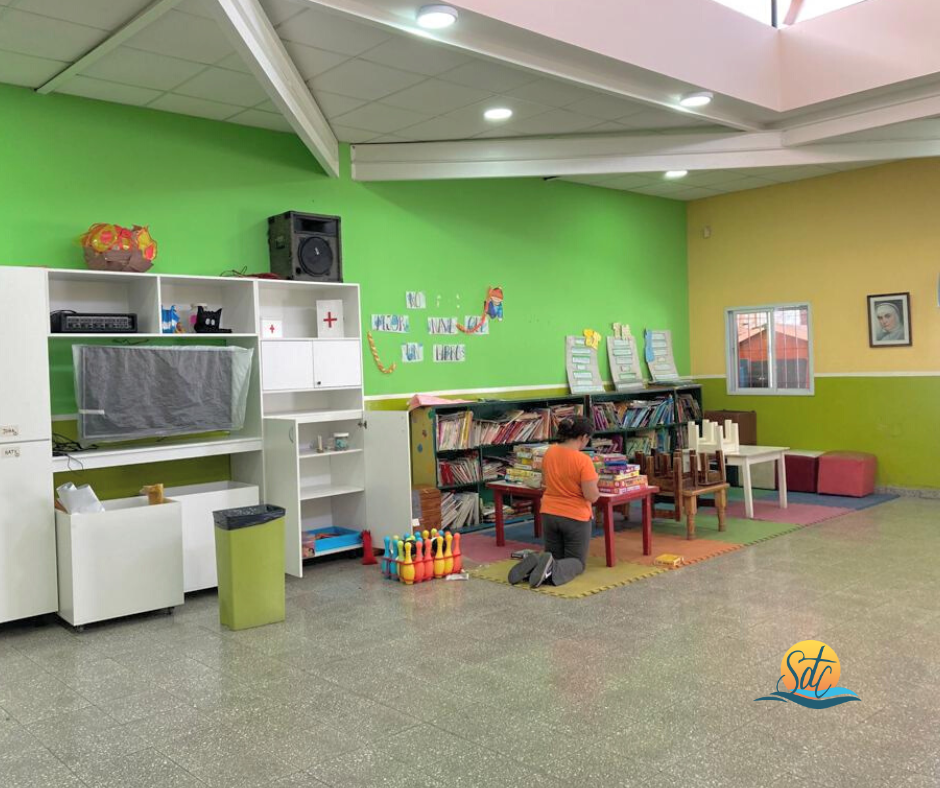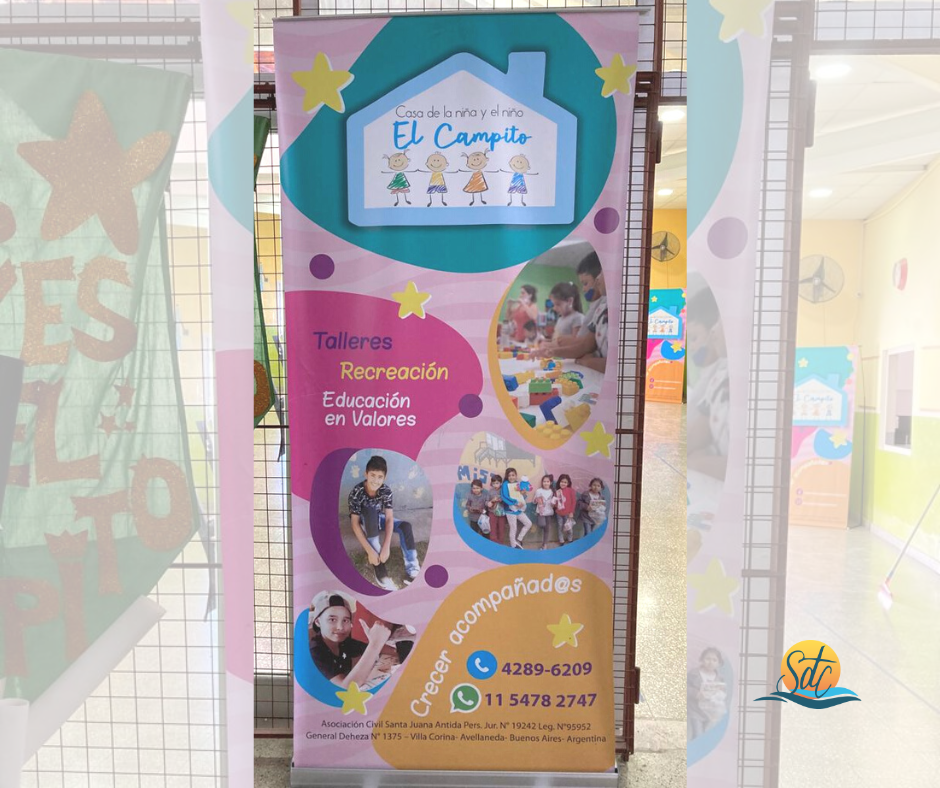Trying to make a difference in education: January 24 is the International Day of Education, first established by the United Nations in 2018, a key day to draw attention to the importance of education, to reflect on the urgent need to find solutions to combat school dropout.
In a world where some 244 million children and adolescents are out of school, there is a reality of the Sisters of Charity trying to make a difference, witnessed here by Sister Marina Bottiani, who has been a missionary for 30 years in several Latin American countries.
El campito: an educational landmark for the neighborhood
We are in Villa Miseria, one of the poor neighborhoods on the fringes of Buenos Aires, one of the many villas, the neighborhoods that have grown up, often without planning and under emergency housing conditions, on the fringes of the big city.
There is little difference from the ‘favelas’ and slums of other poor suburbs of the world. One only has to look at what the ‘streets,’ better, los pasillos, are to realize this: guts five feet wide, the houses on both sides, with the walls face to face.
Families, large and extended to grandparents, live in cramped and unhealthy spaces. Yet, they live a generous poverty and know how to share, despite the heavy straits.
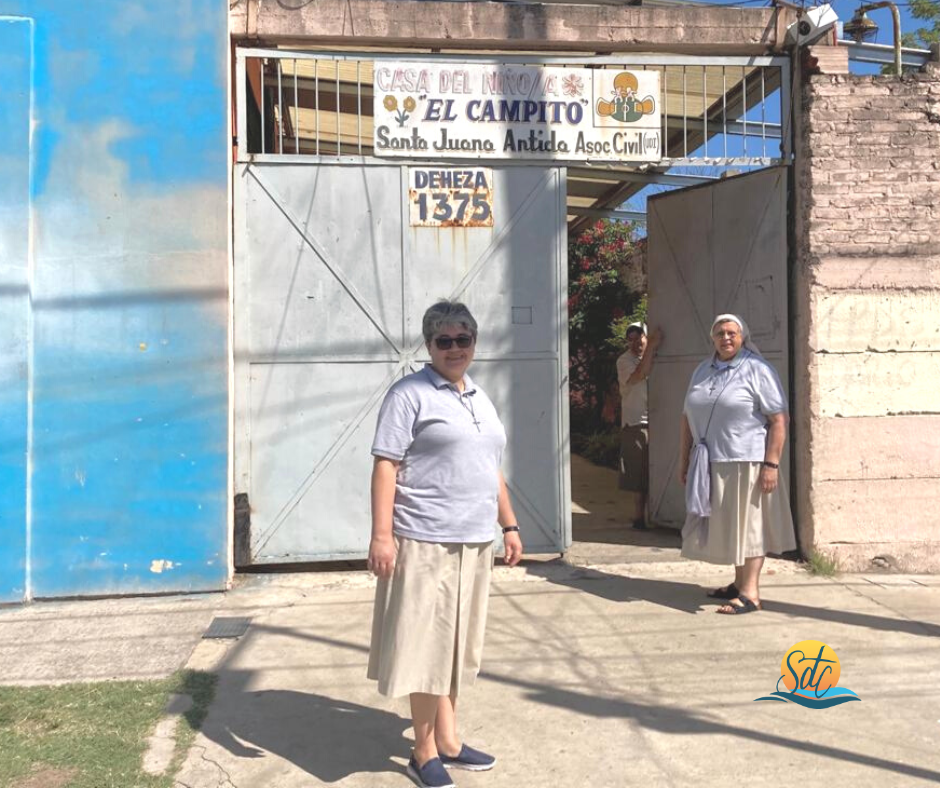
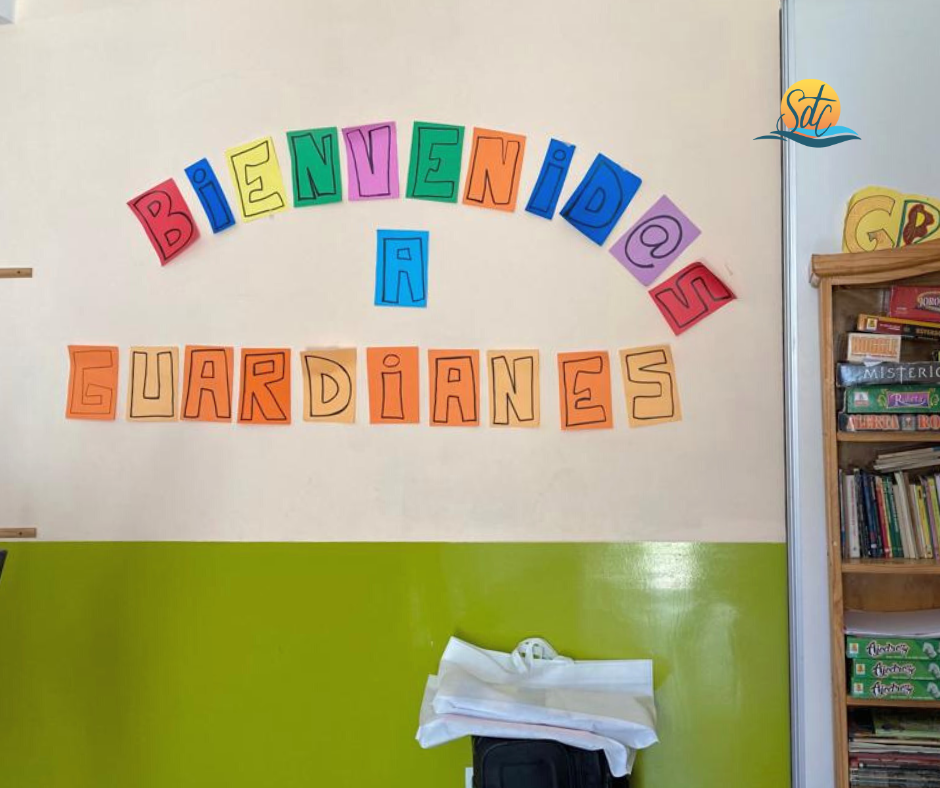
It is in this context that “El campito,” a space that the sisters have transformed into a neighborhood revival point, flourishes.
Valuable help: there are about 90 children assisted every day.
The discomforts of their daily lives and first and foremost their basic needs are met: daily meals are guaranteed, from breakfast to lunch, hygiene is educated, attendance at school is monitored and motivated, they are welcomed after classes, a patch of land equipped offers space to play and have fun.
Villa Miseria
Problems here range from lack of work to the scourge of alcohol, compounded by the scourge of drugs, which find easy ground where misery dominates: the drug trade has gained a foothold with the well-established tactic of first selling discarded drugs at seemingly acceptable prices, and then affiliating them for resale, with the illusory blackmail of easy profit.
“In the refrigerators of so many homes,” says Sister Marina, “along with scarce food you find drugs. And if on a light line connecting two houses, you spot a pair of shoes hanging, it’s a sign: drugs are being sold down there“.
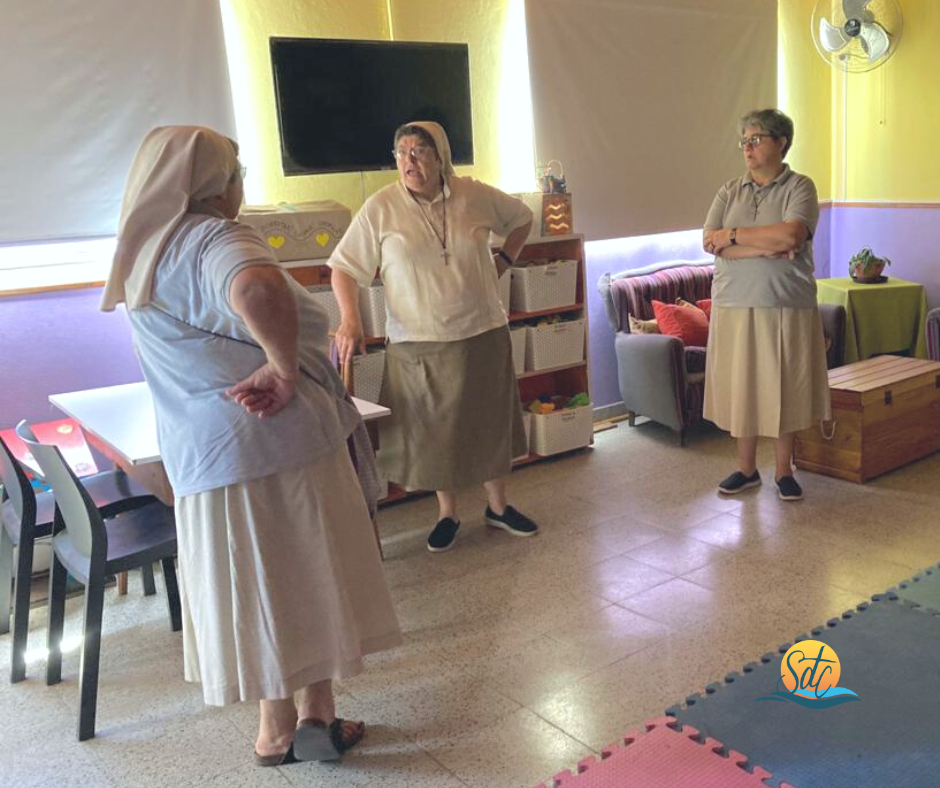
Drugs call for violence, and violence, already an endemic companion of misery, has increased significantly since the pandemic, as has 1 aggression among children and young people.
The youngest are exposed to all kinds of risks. Even going to school takes a long way, and when you only have one pair of shoes and you suddenly get caught in the rain, you have to wait for your shoes to dry and you don’t go to school…. And you don’t go, even when it falls to those who are still minors to look after younger siblings….
Campito’s daily life
The sisters are helped by volunteers, a psychologist and a psychopedagogist.
During the pandemic, with the Center closed, mothers were always assured of food distribution.
Being able to get dressed, being able to eat, being enabled to go to school, having help for their frailties: something taken for granted, for us, but 60 meals served every day to those children speak for themselves: this shows the need and shows the outstretched hand..
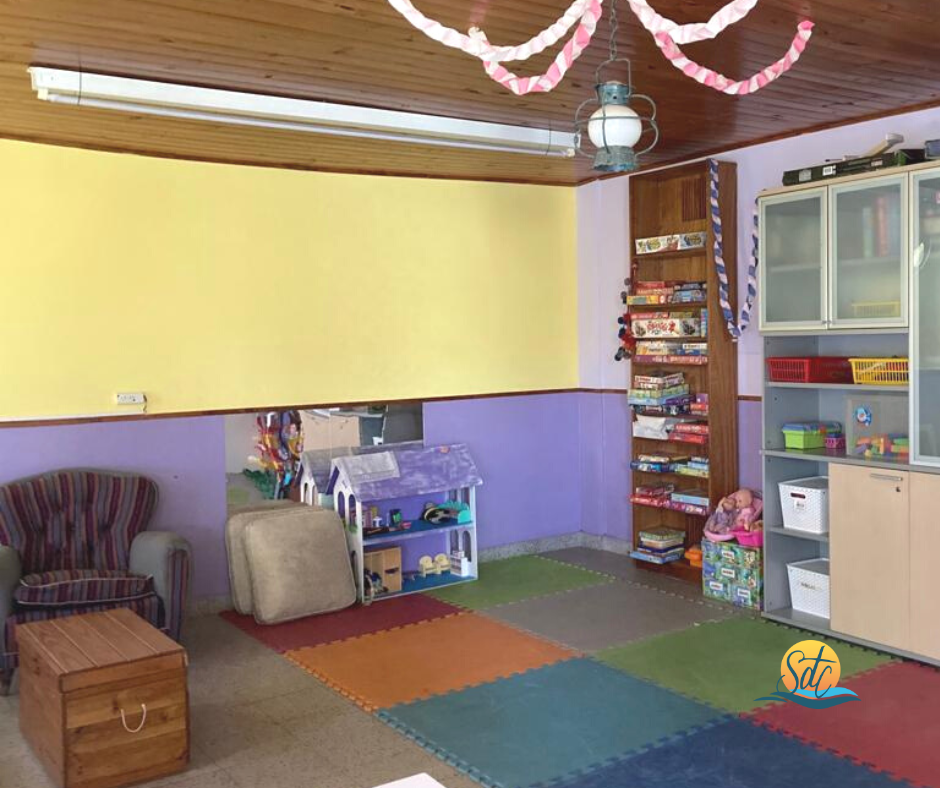
Certainly, the social environment of Villa Miseria opposes strong negative competition in the face of the Center’s goals. And to us, who observe ‘from the outside,’ needs and problems may seem preponderant, compared to the dedication and skills of those who animate the Campito.
But Sister Marina does not have the doubts of those who are outside observers:
“One works as a ‘team’ without getting discouraged and, what is important, one works with them. And while you are with them, you witness to those little ones that there are other values, positive values, worth living for.”
